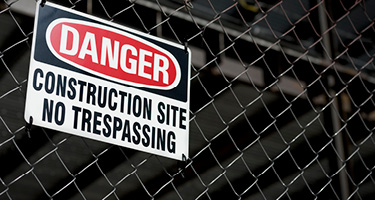As the dust settles and the more severe variants of COVID-19 finally subside, the effects of the virus on both corporate and residential housing have left many renters and landlords with more questions than answers about the future of the rental markets. The uncertainty surrounding the economy, the future of other commercial real estate spaces and rising inflation all factor into the issues currently facing the commercial and residential rental markets.
Although the market for residential housing ownership saw substantial competition in the immediate aftermath of COVID-19, the booming market surrounding home ownership did nothing to lessen the demand in rental markets. Instead, rental markets around the country saw continued competition and price increases. In large part, the continued demand has to do with the housing shortage in the United States, which has put an equal amount of stress on rental markets as it has on the home purchasing market.
Rental prices not only rose across the country in 2022 but are projected to continue to do so in 2023. Landlords point to inflation as the cause of the pricing hikes, as the cost of replacing appliances and repair work to their buildings has risen, along with lost rental income during the COVID-19 eviction moratoriums. Other factors affecting rental prices include the rising population in the United States and the concentrated population in urban and suburban areas.
COVID-19 eviction moratoriums have ended for most of the country and will soon end in some of the last cities that have held onto providing their communities with those protections, such as Los Angeles. The end of eviction moratoriums and federal aid for rental assistance, the spikes in rental prices and an economy showing signs of slowing down are among the main reasons eviction rates have increased throughout the country.
Residential Housing Market
As eviction rates and rental prices rose in 2022, the economic slowdown also resulted in mortgage interest rates rising during the year, making it more expensive to purchase a home. As a result, many potential home buyers looking to exit the rental market have been forced to—or have decided to—stay in rental housing in the hopes that mortgage interest rates will fall again, which has increased the demand for rental housing substantially. This demand is another factor affecting the increasing rents across the country, as more renters contend for the same number of available properties.
The uncertainty surrounding the economy and the potential for a recession in 2023 have many tenants uneasy about the current state of the rental market, but the need to purchase homes has left many low- to middle-class renters with no other option but to continue renting.
Commercial Rental Market
The post-COVID-19 uncertainty of office space needs and rising vacancy rates has made office space a riskier asset, which saw many companies realizing the benefits of expanding their portfolios to include a less vulnerable commercial real estate market: multifamily housing. Consequently, private equity firms and other commercial real estate investors purchased housing units nationwide throughout 2021 and the beginning of 2022. This trend dissipated over the year as rising inflation and economic uncertainty made these deals less appealing to investors.
The uncertainty surrounding the economy and the potential for a recession in 2023 have many tenants uneasy about the current state of the rental market."
Investors and commercial developers now find themselves weighing the rising risk in the commercial housing market and assessing the likelihood that inflation will decrease in the coming year when trying to determine if this market will continue to be investor friendly in the future.
Corporate Housing
The housing and rental shortage has affected corporate housing as well. The lack of corporate housing has led businesses to develop flexible solutions, e.g., Dollywood building their own corporate housing and companies such as Landing offering a membership that allows employees moving from around the country to have corporate housing nationwide through their subscription services. Outside of businesses changing the market, extended-stay hotels are becoming a more common option for corporate employees as an alternative to the corporate housing rental market.
Conclusion
A potential bright side for both landlords and tenants is that inflation has already begun to slow and is projected to continue to decline in 2023. The hope is that the slowing of inflation would stabilize rental prices and enhance the ability of low- to middle-class tenants to better afford their current rents as prices of all other necessities decrease, such as gas, groceries and other home costs.
Furthermore, it is expected that the booming home construction market and additional rental units entering the market could relieve some strain on the rental market and housing shortage in 2023. Closing the supply and demand gap in the rental market could go a long way to easing corporate and residential renters’ worries in the coming year and would likely stabilize the rental markets.
This article is for informational purposes only. Nothing herein should be treated as legal advice or as creating an attorney-client relationship. The choice of a lawyer is an important decision and should not be based solely upon advertisements.
Jarred W. Boyer is an associate at Carmody MacDonald P.C. in St. Louis, Missouri. He focuses his practice on business litigation. He can be reached at jwb@carmodymacdonald.com or 314-854-8600.
































